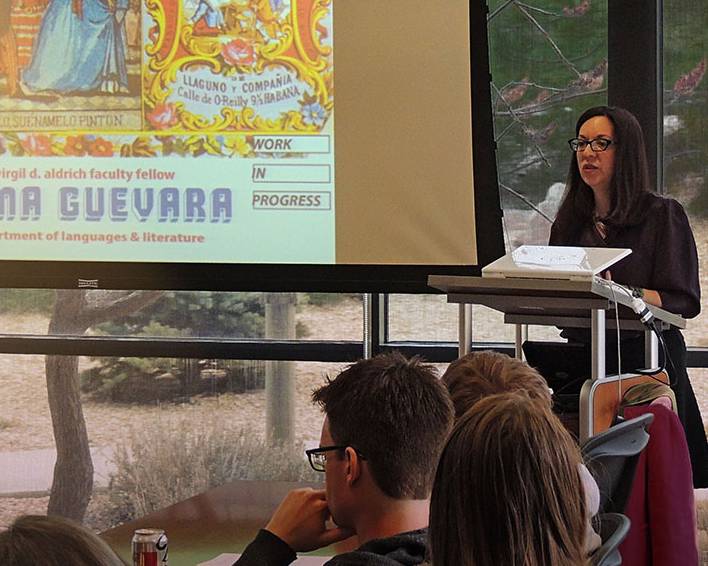Apply to Become a
Tanner Humanities Fellow

Through the research fellowship program, the Tanner Humanities Center seeks to encourage, support, and disseminate important humanistic research.
The deadline for University of Utah faculty applicants is October 1 to their department chair, and October 15 to the Center. Internal applicants will be notified by mid-December.
The deadline for graduate fellows is December 1.
The deadline for visiting faculty fellowship applications is December 1.
2025-2026 visiting research fellowship
2025-2026 INTERNAL FELLOWSHIP APPLICATION
2025-2026 Graduate FELLOWSHIP APPLICATION
2025-2026 cAREER-LINE fACULTY fELLOWHIP aPPLICATION
Department Chair Approval Form for Internal Faculty Fellowship Applications
The Tanner Humanities Center and the Environmental Humanities Program of the University of Utah request applications for the Annie Clark Tanner Fellowship in Environmental Humanities and Environmental Justice. This fellowship seeks an active scholar whose work explores justice, climate, and environment from the perspective of the humanities. The ideal candidate will have a research agenda engaged with topics like climate justice, indigenous sovereignty, environmental racism, climate displacement, or other pressing issues connecting humanities scholarship with justice and environment. The ideal candidate will also be a capable teacher, able to explore this work in a seminar with environmental humanities graduate students.
Utah’s graduate program in Environmental Humanities has created an interdisciplinary space where students and faculty reflect, create, and act at the intersection of the academy and the world. The Mellon Foundation recently honored us with a major environmental justice grant. Our work engages new forms of environmental leadership and stewardship shaped by scholarly inquiry about environment and justice.
The fellowship will consist of a year-long residency at the university’s award-winning Tanner Humanities Center. The Tanner Center advances field-shaping scholarship through external fellowships, faculty research, and community engaged projects. The Tanner Center supports work that transcends traditional disciplinary and departmental boundaries.
The successful applicant will:
- Teach a spring semester seminar focused on environmental humanities writing with a small, ambitious group of Environmental Humanities graduate students
- Participate in the intellectual life of the Tanner Humanities Center
- Participate in the intellectual life of the Environmental Humanities graduate program
- Deliver a work-in-progress talk
Applicants should submit a portfolio that includes:
- One-page cover letter explaining your interest in the position and relevant experience
- ResearchAbstract (one page, single-spaced under 250 words)
- Curriculum Vitae
- Narrative Summary (Sections A, B, C, and D should not total more than 5 pages (double-spaced) plus (if necessary) one page of notes, and should contain:
-
- Conception and Definition of the Project: Describe the specific research planned for the fellowship period; explain the basic humanistic ideas, problems, or questions to be explored. Clearly explain the relationship of the project to your past and future research objectives, and clearly tie your project to the recent work of other scholars in the same general area of the humanities.
- Significance: Explain the significance of the proposed work and its anticipated contribution.
- Plan of Work and Methodology: Outline the work plan, methodology, and schedule for the proposed period of research, noting preliminary work completed; describe the present state of the project, and detail any stages to be completed after the fellowship period. Please be as precise as possible about activities during the fellowship period and include a week-by-week or month-by-month timeline of goals.
- Expected Results: Detail the likely and intended results of research during the fellowship as well as plans for further research on the same project. The proposal should address the following relevant questions: Will a book, series of articles, etc. result from the project? If final or tentative publication, or other form of dissemination of the results of the proposed research has been secured, please inform us.
Questions can be addressed to Jeremy Rosen, Director of the Tanner Humanities Center, jeremy.rosen@utah.edu or Danielle Endres, Director of Environmental Humanities, University of Utah, danielle.endres@utah.edu.
